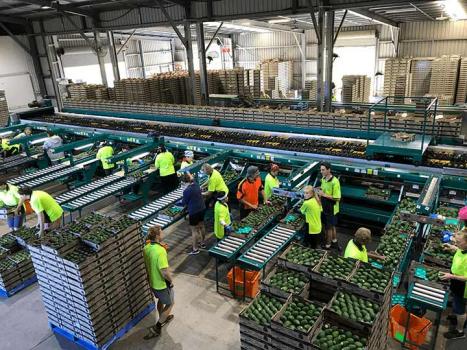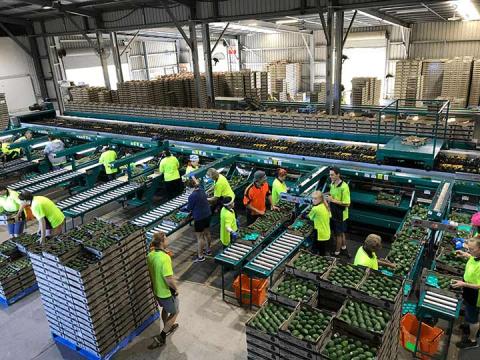Close to 2,000 tonnes of vegetables will leave Farmfresh Fine Foods annually, destined for ready made meals, airlines, global fast food chains, café and restaurant chains, hospitals, aged care, mining camps and retailers.
On the menu are sweet potato wedges, zucchini and vegetable chips, blanched and roasted vegetables and a range of new innovative vegetable and plant based products.
The business was one of 15 to receive a co-contribution grant of up to $250,0000 under Round Three of the Rural Economic Development (RED) Grant program administered by the Queensland Rural and Industry Development Authority (QRIDA).
The grant will aid the expansion of the existing Farmfresh Fine Foods vegetable processing facility to incorporate a new production line that will enable the business to take advantage of some significant COVID-recovery related opportunities in the industrial, food service and retail markets.
The new processing line will also allow the business to process up to a tonne of vegetables every hour, more than double the existing capacity.
Managing director corporate services Janelle Gerry said the project was driven through recent consumer demand for Australian grown and manufactured vegetables, due to its high quality, but also the interruption to imports and overseas supply chains.
“The project will expand production capability resulting in outcomes including increased production, enhanced efficiencies and economies of scale, cost competitiveness, development of new value-added products, import substitution, employment generation and additional supply opportunities for local farmers,” Mr Gerry said.
Ms Gerry said Farmfresh Fine Foods would partner with local growers to develop both a sustainable and economical model to contract grow, where possible utilising 100% of crops even considered lower grade produce. Established in 1998, Farmfresh Fine Foods works with 24 Bundaberg farms and supplies a diverse range of vegetable products.
“Part of the marketing strategy is to promote local, home-grown produce with all frozen sweet potato products shelved in major supermarkets currently imported,” Ms Gerry said.
“There is also the opportunity for greater flexibility with this new processing providing multiple processing methods which can be applied to other vegetables such as zucchini, beetroot, capsicum and pumpkin.”
The project will need 15 employees during construction and another 27 jobs will be created post construction, as well as supporting more than 180 indirect jobs.
“Agriculture and food manufacturing are growing industries in the Bundaberg region, with it being considered one of the premiere food bowls in Australia,” Ms Gerry said.
The Rural Economic Development (RED) Grants program offers emerging projects up to $250,000 in co-contributions to build industry and grow employment opportunities across the agricultural sector. The $10 million grants program provides for three funding rounds over a three-year period ending 2021.
A total of 15 businesses have received $3.14 million under the third round of funding for the RED Grants program. Overall, these projects are expected to create more than 600 jobs across the agricultural sector in regional Queensland.
Across the three rounds of the RED Grant program, a total of 43 agricultural businesses have received funding toward economic development projects worth $40.8 million and estimated to create 1,897 new direct and indirect jobs over the lifetime of these projects.
QRIDA offers a range of assistance to primary producers, small business and non-profit organisations. To find out what’s available visit Programs and Services.
The Queensland Rural and Industry Development Authority (QRIDA) administer the RED Grant scheme on behalf of the Department of Agriculture and Fisheries.

